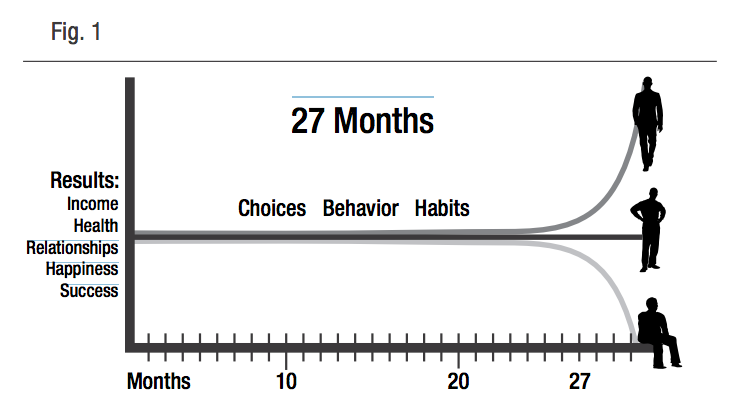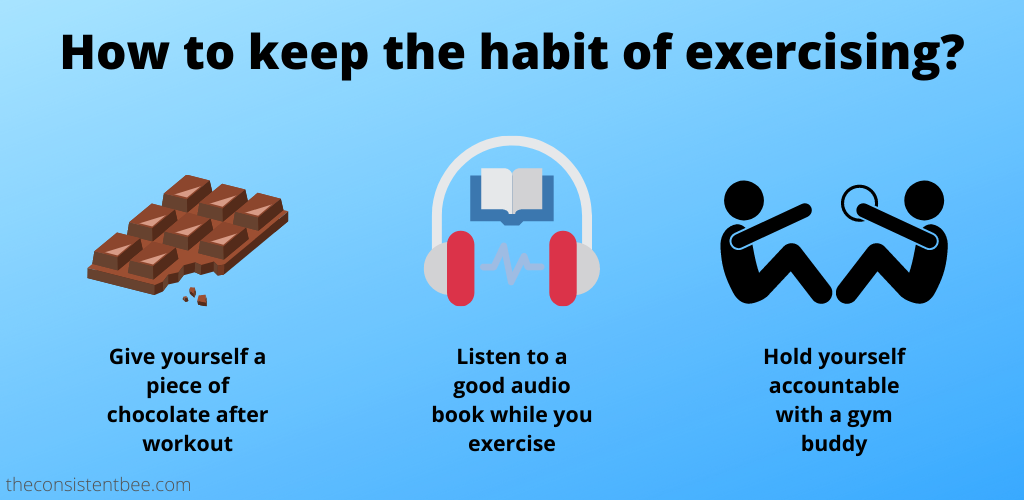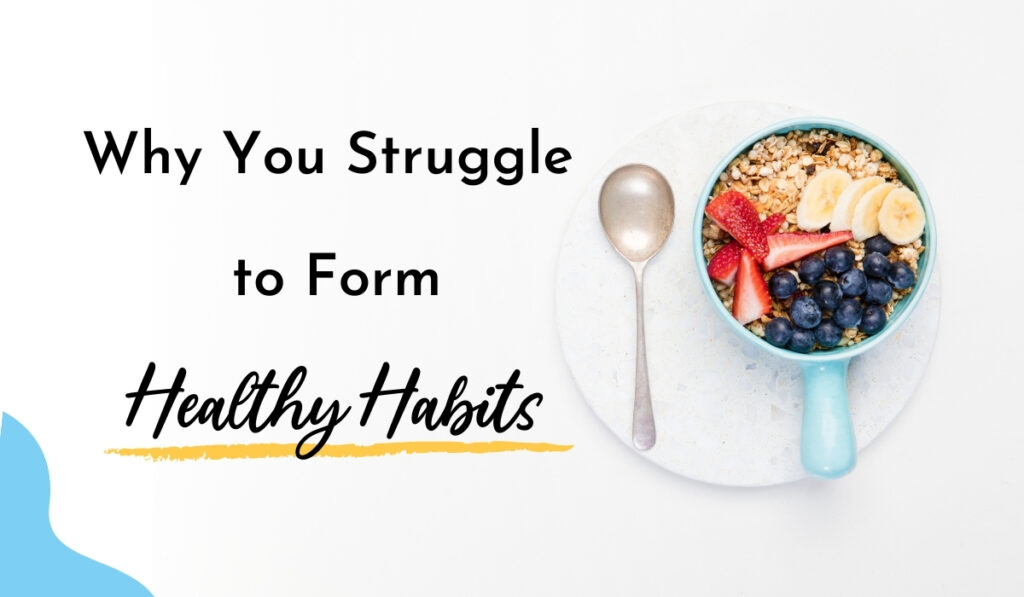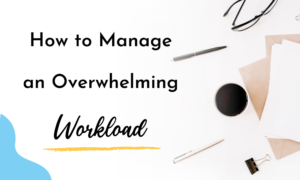Raise your hand if you’ve never failed at sticking to a New Year’s Resolution.
Yeah, that’s what I thought.
Nothing’s more discouraging than starting a new habit and giving up on it two weeks later.
You try to form healthy habits and replace the bad ones, but why is it so hard to stick to them?
You may be taking the wrong approach, and a change in mindset might be just what you need.
In this post, I’m going to share with you 5 reasons why you may be struggling to form healthy habits and how you can change that.
Let’s jump in!

1. You take on too many habits at once
If you attempt to change your life several habits at a time, your efforts may be met with failure.
This is because your brain has to get used to the new activity you’re incorporating into your life.
If you bombard it with too many new challenges, it will get overwhelmed and you will burn out.
The whole goal is to weave your new habit into your daily or weekly routine and the only way to do that is through repetition.
Stick with a plan if you want to succeed
Studies have shown that the most effective way to cement a new habit is through what’s called implementation intentions.
Implementation intentions answer what, when, and how you will do the action.
Basically, you follow this formula:
I am going to meditate (activity) for 15 minutes (amount of time) on my couch (where) every morning (when) after I eat breakfast (contextual cue).
The contextual cue refers to a habit you already do. Performing a new habit directly after this one increases your odds of success because the cue “initiates” the process.
However, this only works when you focus on forming one habit at a time.
What you can do:
- Pick one habit to focus on
- Create a plan that answers when, where and how you’ll do the habit.
- Stick with it until it becomes automatic (1-2 months or longer), then move on to the next habit

Do you want to be more productive in the morning without all the stress? Let me help you set your day up for success with my FREE Morning Habit Challenge!
Enter your name & email below to get your hands on it!
2. The habit isn’t simple enough
As humans, we often make the common mistake of thinking we can take on more than we can handle.
We have high expectations for ourselves, not realizing that sometimes these expectations are not realistic.
Break it down to 10%
Think of your end goal (i.e going to the gym 3 times per week) as 100%. You’ve fulfilled your goal.
Think of the first step to working toward your end goal as 10%.
What might 10% of going to the gym 3 times per week be?
Maybe it’s just putting your running shoes on and stepping outside.
Whatever it is, make sure it can be done within a couple of minutes.
An action that is too complex will be more difficult to do day in day out.
Here are some examples:
Exercise: put on your workout clothes and step outside.
Meditation: Sit down on a soft cushion and take three deep breaths.
Nutrition: Eat a handful of nuts or one serving of fruit every day.
Reading: Read one paragraph or one page per day.
What you can do:
- Break down your habit into an even smaller action to start, then build on it over time
3. You get impatient when you don’t see results
Psychology Today says that “impatience is triggered when we have a goal and realize it’s going to cost us more than we thought to reach it.”
Many of us become discouraged when we don’t see immediate results.
It’s important to understand just how habits work, though, and change our perspective accordingly. Take the below chart for instance. It’s from Darren Hardy’s book, The Compound Effect.

As you can see, when you first start a new habit, there is no visible change after days or weeks.
As you stay consistent over months and years, positive (or negative) change starts to take place.
It’s all a game of consistency and patience.
By understanding this we can enjoy the journey a bit more and shake off unnecessary stress.
4. Your negative self-talk makes you stop
“I can’t do that.”
“I knew I’d give up halfway through.”
“I can never get things right.”
Self-talk like this can be a dream killer.
When we talk down on ourselves and highlight our faults, we lose the confidence to keep going with our new habits.
What you can do:
- Question the validity of your thoughts. Often our mind exaggerates and doesn’t truly reflect a realistic point of view.
- Replace the thought with a positive one. Focus on something you’re thankful for or proud of yourself for doing.
- Thoughts, not facts. Remind yourself that these are merely thoughts and they don’t necessarily represent the truth.
5. You simply just don’t think it’s enjoyable

How do you expect to stick with something you hate?
What’s important to understand is that habits start with a cue and end with a reward. All habits, good or bad, follow this formula.
A reward can be the endorphins after a good workout or a piece of chocolate you give yourself for not checking your phone notifications.
In other words, it’s a dopamine hit.
Dopamine keeps you coming back for more
When dopamine is released in your body it’s essentially telling our brain, “Yes, that’s good, keep doing it!”
If you want to make your habit enjoyable, you have to find a reward that makes your brain want to do the action again.
Don’t be afraid to try out different routines and rewards until you find one that works for you.

Here’s an example for exercising:
- Reward yourself with a piece of dark chocolate after your workout.
- Listen to a good audiobook or watch something on Netflix as you jog on the treadmill.
- Set up a workout date with a friend so you have someone to hang out with.
By linking a reward to your action, you will be more likely to enjoy the habit and stick with it over time.
Final Thoughts
Forming new, healthy habits isn’t always easy. However, we may be making the process more arduous without realizing it.
To improve your chance at success you’ll want to avoid:
- Taking on too many habits at once
- Not making the habit simple enough
- Getting impatient when you don’t see fast results
- Believing your negative self-talk
- Not pairing your new habit with a reward that makes you happy
Forming new habits isn’t a walk in the park, but it is easier when you know how to approach it.
Now that you know how to form good habits, check out my other post 5 Simple Habits for Making Your Morning More Productive.








